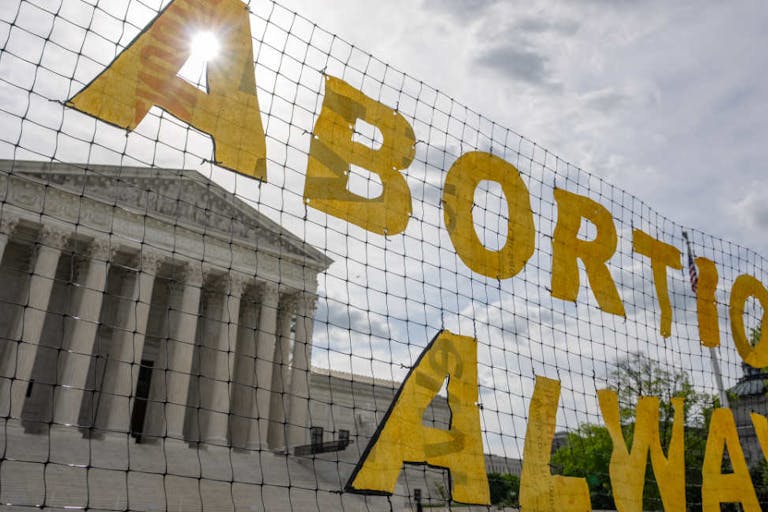
A growing number of Americans call themselves ‘pro-choice’ – but what’s really behind it?
Nancy Flanders
·
Issues·By Catherine Livingston, PhD
Arkansas leads the nation in recent pro-life legislation
When you ask individuals which of the 50 states is more advanced and progressive, few might top the list with Arkansas—unless they are pro-life.
As the 2015 legislative sessions come to an end, topping the list in pro-life legislation is Arkansas, which passed six pro-life bills, as well as two resolutions supporting pregnancy resource centers. While it’s early in the year, Arkansas is showing its legislative strength.
The laws that passed earlier in the session, reported by the Times-Record, are as follows:
SB 53, now Act 139 (Sen. Missy Irvin, R-Mountain View). Requires that a doctor be physically present when an abortion-inducing drug is administered.
HB 1394, now Act 577 (Rep. Charlene Fite, R-Van Buren). Requires that the U.S. Food and Drug Administration’s protocols, including recommended dosage levels, be followed when an abortion-inducing drug is administered.
HB 1407, now Act 535 (Rep. Kim Hammer, R-Benton). Requires that require doctors and facilities, including abortion clinics, dispose of human tissue through burial, cremation, incineration or release to a patient or authorized person.
HB 1424, now Act 934, (Rep. Justin Harris, R-West Fork). Prohibits a doctor from performing an abortion on a woman younger than 18 unless the doctor first obtains notarized written consent from the woman and a parent or guardian.
The final two, signed by Governor Asa Hutchinson last week, include:
Act 1086, which “will require a woman seeking an abortion to meet in person with the doctor at least 48 hours in advance of the procedure… The woman must be advised of risks associated with abortion, the physical characteristics of fetuses at various stages of development, available resources if she should decide to carry the pregnancy to term and, if an abortion is sought in the 20th week of pregnancy or later, pain the fetus is likely to feel during the procedure.”
Article continues below
Dear Reader,
Have you ever wanted to share the miracle of human development with little ones? Live Action is proud to present the "Baby Olivia" board book, which presents the content of Live Action's "Baby Olivia" fetal development video in a fun, new format. It's perfect for helping little minds understand the complex and beautiful process of human development in the womb.
Receive our brand new Baby Olivia board book when you give a one-time gift of $30 or more (or begin a new monthly gift of $15 or more).
Act 996, barring “the state from appropriating money to any entity that provides abortions or abortion referrals, or any entity that is affiliated with such an entity.”
Of course, pro-abortion advocates had harsh words. Erin Davison-Rippey, director of public affairs for Planned Parenthood of the Heartland, said:
“Both the number and the direct impact on families in Arkansas this session was really unprecedented. When you compile them as a whole, it’s absolutely devastating for people seeking health care.”
But pro-lifers knows that laws such as these make abortion more difficult not to hurt women, but to help them. With such laws, women cannot be easily coerced into impulsive abortion decisions, manipulated into tragic choices which cannot be undone. If a monumental decision such as taking the life of a preborn baby cannot wait two days, or be subject to some basic questions or information, then it’s no better than a piece of propaganda that is used to control or direct someone before she can weigh the decision.
Arkansas is leading the way with pro-life legislation this year, and pro-lifers hope other states will follow suit — not out of competition, but out of passion for saving innocent lives.
Live Action News is pro-life news and commentary from a pro-life perspective.
Contact editor@liveaction.org for questions, corrections, or if you are seeking permission to reprint any Live Action News content.
Guest Articles: To submit a guest article to Live Action News, email editor@liveaction.org with an attached Word document of 800-1000 words. Please also attach any photos relevant to your submission if applicable. If your submission is accepted for publication, you will be notified within three weeks. Guest articles are not compensated (see our Open License Agreement). Thank you for your interest in Live Action News!

Nancy Flanders
·
Politics
Bridget Sielicki
·
Issues
Sheena Rodriguez
·
Guest Column
Right to Life UK
·
Issues
Bridget Sielicki
·
International
Cassy Cooke
·
Human Interest
Catherine Livingston, PhD
·
International
Catherine Livingston, PhD
·
Newsbreak
Catherine Livingston, PhD
·
Human Interest
Catherine Livingston, PhD
·
Human Interest
Catherine Livingston, PhD
·